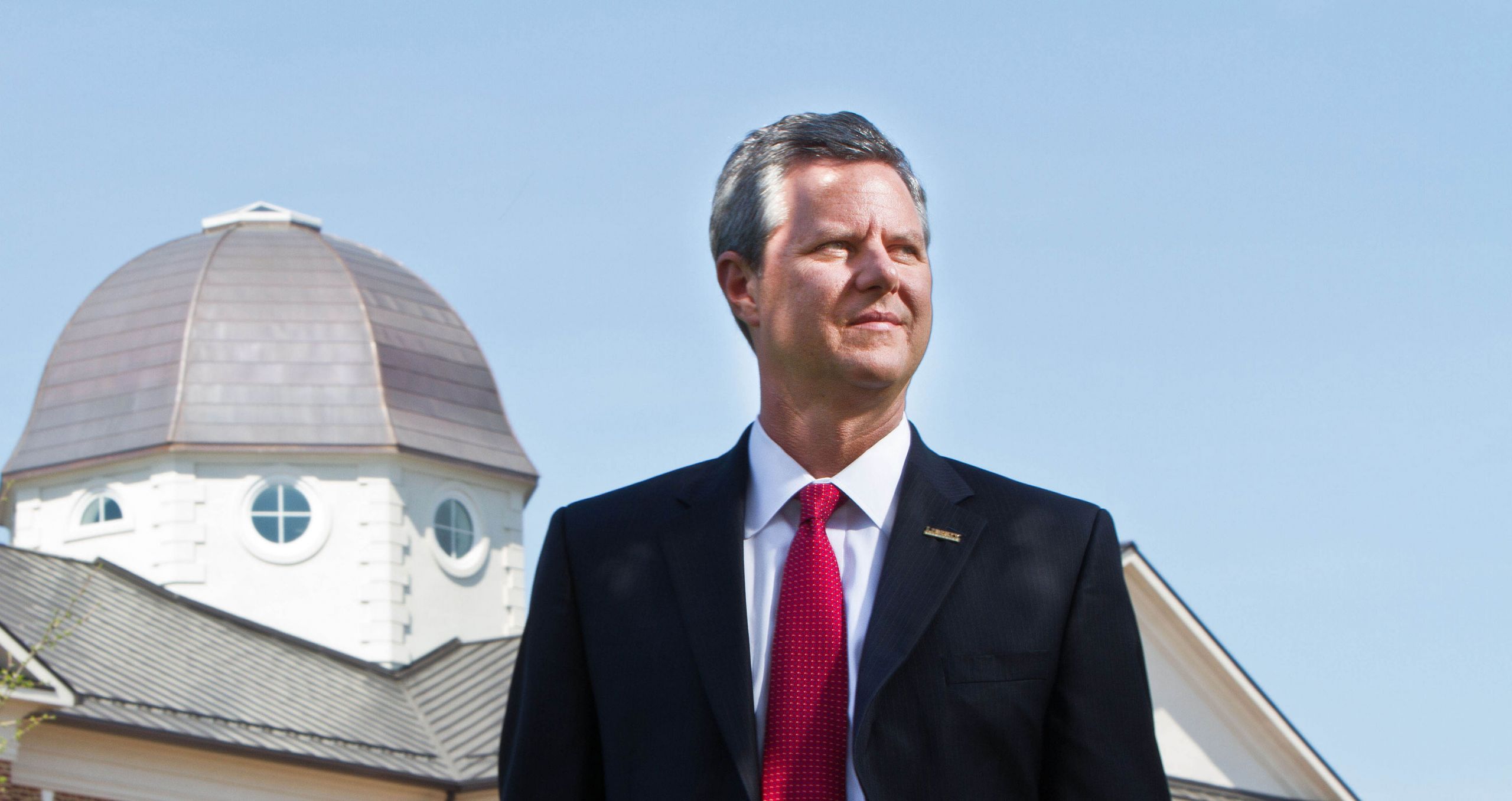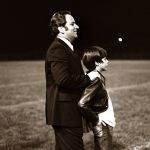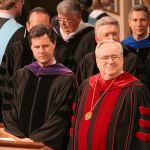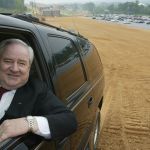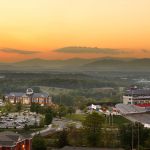The Rev. Jerry Falwell died five years ago, but the fruit of his indomitable faith in God is still prospering today in the growth and development of Liberty University.
After decades of financial struggles, the university that he founded 40 years ago is flourishing on the international stage like few others.
His determination to implement the school’s distance learning program (now Liberty University Online) has given the university a sound financial foundation and led to unprecedented enrollment growth since the Internet became the primary way of dispensing and receiving information.
Liberty is on the cusp of having $1 billion in net assets and is racing toward 100,000 students enrolled.
That’s a pretty good return on a concept drawn up on napkins during breakfasts with close advisors like Dr. Ron Godwin, who now serves as Liberty’s provost and senior vice president for Academic Affairs.
Following a biblical principle, Falwell planted and God has provided the increase.
While Falwell gained a reputation as a conservative gunslinger on the national stage of the culture wars, he is remembered by family and friends as a kind man who visited young couples distraught by tensions that could end their marriages. He was a regular visitor to grieving relatives who just lost a loved one or someone in the hospital facing a grim medical report.
On the walls of his shower at home, he designated certain tiles as reminders of the people he had added to his ever-expanding prayer list.
Those were actions he took that never played out publicly, simply because he didn’t want them to. He devoutly held on to his role as a pastor and a humble servant of God, although he routinely entertained conversations with power-political figures or provided quiet counsel to those he debated on prime-time television.
On the one hand, his role was that of a compassionate confidant to his church flock and “his kids” at Liberty. His more public role was to defend conservative values on television and get a not-so-subtle plug in for the university whenever he could.
While Dr. Falwell attempted to keep some normalcy in his life, in his later years he knew his body was breaking down.
“He knew his heart condition was getting worse,” Godwin said.
One encounter with Falwell still sticks in Godwin’s mind.
“What are you doing, Doc?” Godwin asked after seeing the Rev. Falwell peering out a glass exterior door about 20 yards from his office.
“I’m pretending I am looking around,” Falwell answered. “But I really need to catch my breath so I can make it to my truck.”
Increasingly, in speeches, Falwell, Sr. would mention his sons, talking about projects that Jerry Falwell, Jr. was working on at the university or about a sermon that Jonathan Falwell had given at the church.
“He did that on purpose because he was trying to get everybody else used to the idea of him not being here,” Chancellor Jerry Falwell, Jr. said.
At breakfast meetings, he would mention “the boys” more often and talk more frequently about the line of succession that he had set up.
“He never attempted to milk the situation because of his condition,” Godwin said. “That was totally in keeping with his personality.”
“Just a week before he died, he was supposed to go into the hospital for tests, but he didn’t want to go because of graduation,” Falwell, Jr. said.
On the morning he died, Godwin urged him once again to go to the Cleveland Clinic for further tests on his heart.
“There is nothing that the doctors could have really done,” Falwell, Jr. said. “He had congestive heart failure.”
It was a medical condition worsened by sleep apnea that had strained the arteries around his heart, making it less efficient in pumping blood.
“A doctor told me in 2005 the only way he would be cured is for him to get a new heart,” Falwell, Jr. said. “I don’t think I was supposed to hear that. I think Dad knew more than he was telling us.”
He knew that Jerry Falwell, Jr. had been groomed to lead Liberty University and the younger son, the Rev. Jonathan Falwell, was called to be a pastor and believed he was ready to assume that role at Thomas Road Baptist Church. Falwell, Jr. had served as General Counsel and Vice Chancellor at Liberty since 1988 and Jonathan had served as the Executive Pastor at TRBC for over 10 years.
The good news was that the year before he died, Falwell, Sr. got to see the university’s online program take off and savor the fact that the once staggering university was now on sound financial ground.
“He would say, ‘Just look at what the Lord has done,’” Godwin said.
“He got to look over into the Promised Land,” Falwell, Jr. added.
Just a year before Falwell, Sr. died, Thomas Road Baptist Church had moved into a new church building adjacent to Liberty’s campus, which had always been one of his goals.
On May 15, 2007, Falwell, Sr. woke for breakfast and went to his office, where he collapsed and never regained consciousness. His death set off a firestorm of media coverage across the nation and around the world.
While the outside world was shocked, his family and friends endured their grief and postponed his funeral and burial until Liberty graduated its 2007 class.
That was the way Falwell, Sr. would have done it. He never wanted to be seen as an obstacle to getting things done.
As part of his succession plan, he had allowed the school to purchase life insurance on his life with death benefits of $29 million. The proceeds of the policies made the university debt free for the first time in its history.
That act alone planted a seed of change in the public’s perception of Liberty’s ability to survive and ushered in five years of unprecedented enrollment growth that has fostered sustained reduction of higher interest debt, a bond rating that puts Liberty among the nation’s university elites for financial soundness and has allowed Liberty to embark on a comprehensive building program that will reshape its campus.
Falwell, Jr., who for years managed Liberty in the background, said the biggest change was that Liberty now had the financial resources to get things done and to fulfill his father’s vision of building a full-fledged liberal arts educational program while staying true to its Christian roots.
Donors have remained steadfast in their support of Liberty’s mission of Training Champions for Christ.
Since 2007, donors have contributed to an indoor soccer facility, improvements to the school’s track and outdoor soccer facilities, and on-campus tennis facilities.
Off campus, donors have given Liberty the Plaza shopping center, the Lynchburg Inn and Conference Center, a 112-acre lake, and an indoor tennis and racquetball facility.
“Donors were reassured that there was life for Liberty after the passing of the founder,” Falwell, Jr. said.
During the 2004 school year, Liberty’s total student enrollment was just over 21,000 students. This year’s student body will top 93,000. More than 23,000 of the school’s online students are serving on active duty in the United States military.
Since Falwell, Sr.’s death, the university has received law school accreditation in addition to launching a Cinematic Arts Center to fully equip Christians for the film industry, an expanded health sciences program to educate medical support personnel, and a College of Osteopathic Medicine, which will train Christian physicians.
Because of its streamlined management structure, Liberty is capable of moving quickly to provide its graduates with training in emerging employment opportunities in an ever-changing global economy.
For example, the Liberty University School of Aeronautics has a drone aircraft program, which will train graduates to serve as military drone operators or civilian drone operators when the Federal Aviation Administration designs ways to incorporate unmanned aircraft into the United States’ domestic aeronautic system.
“We are proud of being a teaching university instead of being a research university,” Godwin said. “The greatest compliment that a university can receive is that its graduates are immediately hirable.”
This year alone, Liberty is poised to add 37 new academic programs in response to students’ expressed needs, said Chris Johnson, Liberty’s senior vice president of Enrollment Management.
About 11 percent of Liberty’s student body is enrolled in these new cutting-edge programs that would not yet exist if not for the university’s ability to make real-time decisions on its academic programs in response to job needs in the marketplace, Johnson said.
Neal Askew, Liberty’s executive vice president, said much of the school’s success has come from its flexibility to make rapid decisions and its commitment to its Christian roots.
“We are not changing our message, but we are willing to change our methods,” he said.
Under Falwell, Jr.’s leadership, the school has become a prominent Central Virginia employer with more than 6,000 employees. Liberty also has become a key ingredient in retail growth, population growth, and expenditures to businesses in the Lynchburg, Va., area.
A study commissioned by the university determined that Liberty pumped about $217 million into the local economy in 2009. That study was commissioned before Liberty began its aggressive campus overhaul, promoted by its ability to sell $220 million of low-interest bonds.
The university has added the state-of-the-art Tower Theater, an innovative artificial ski slope, and a vastly upgraded football stadium under Falwell, Jr.’s watch.
Because of the school’s AA bond rating, the university can now afford a massive overhaul to its main academic campus, which will include the state-of-the-art Jerry Falwell Library, with an automated book retrieval and delivery system that will allow students to request a book and have it delivered to a designated location in the library.
Liberty’s football program is readying itself for a move into the NCAA Football Bowl Subdivision (FBS), which will have Liberty competing at the same level as the University of Virginia and Virginia Tech. Liberty would be the only private school in Virginia competing at that level.
Late last year, Liberty readied itself for ascent to the FBS by hiring Turner Gill, a one-time Nebraska quarterback who is recognized as one of the bright young coaches in America.
The school’s football team has either won outright or shared in the Big South Conference championship four straight years.
The school has greatly expanded its Club Sports programs and facilities, allowing a greater number of students to participate in athletics.
The university’s men’s and women’s Club Sports hockey teams have been nationally ranked, as has the school’s competitive paintball team.
Josh McDougal won the NCAA National Cross Country Championship in 2007. Sam Chelanga won the same title in 2009 and in 2010 became Liberty’s first outdoor track and field national champion when he won the 10K. Chelanga had the third-fastest 10K time in the world in 2010.
“Dr. Falwell used to say, ‘If it is Christian, it ought to be better,’” Godwin said. “We try to make that our working mantra every day.”
